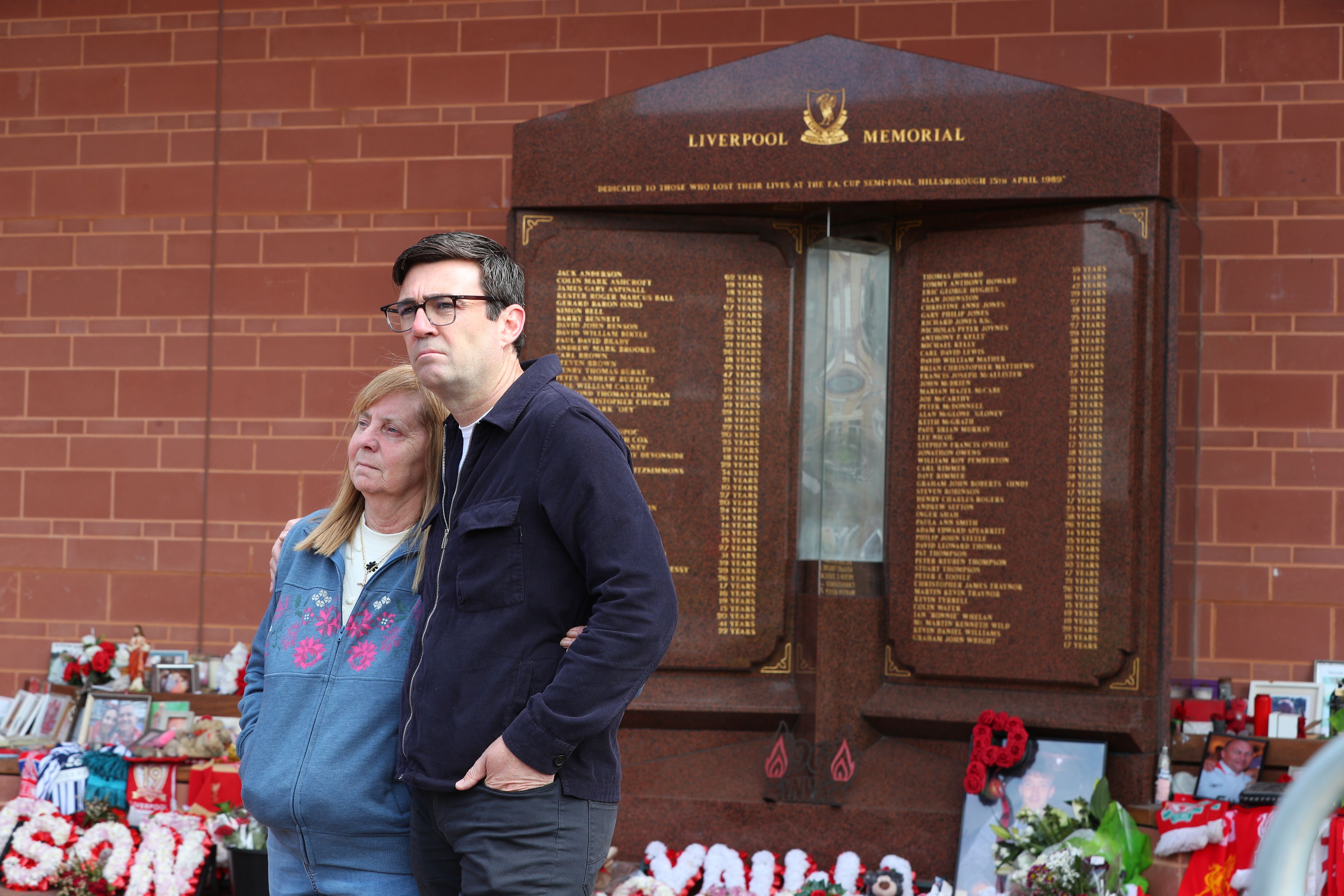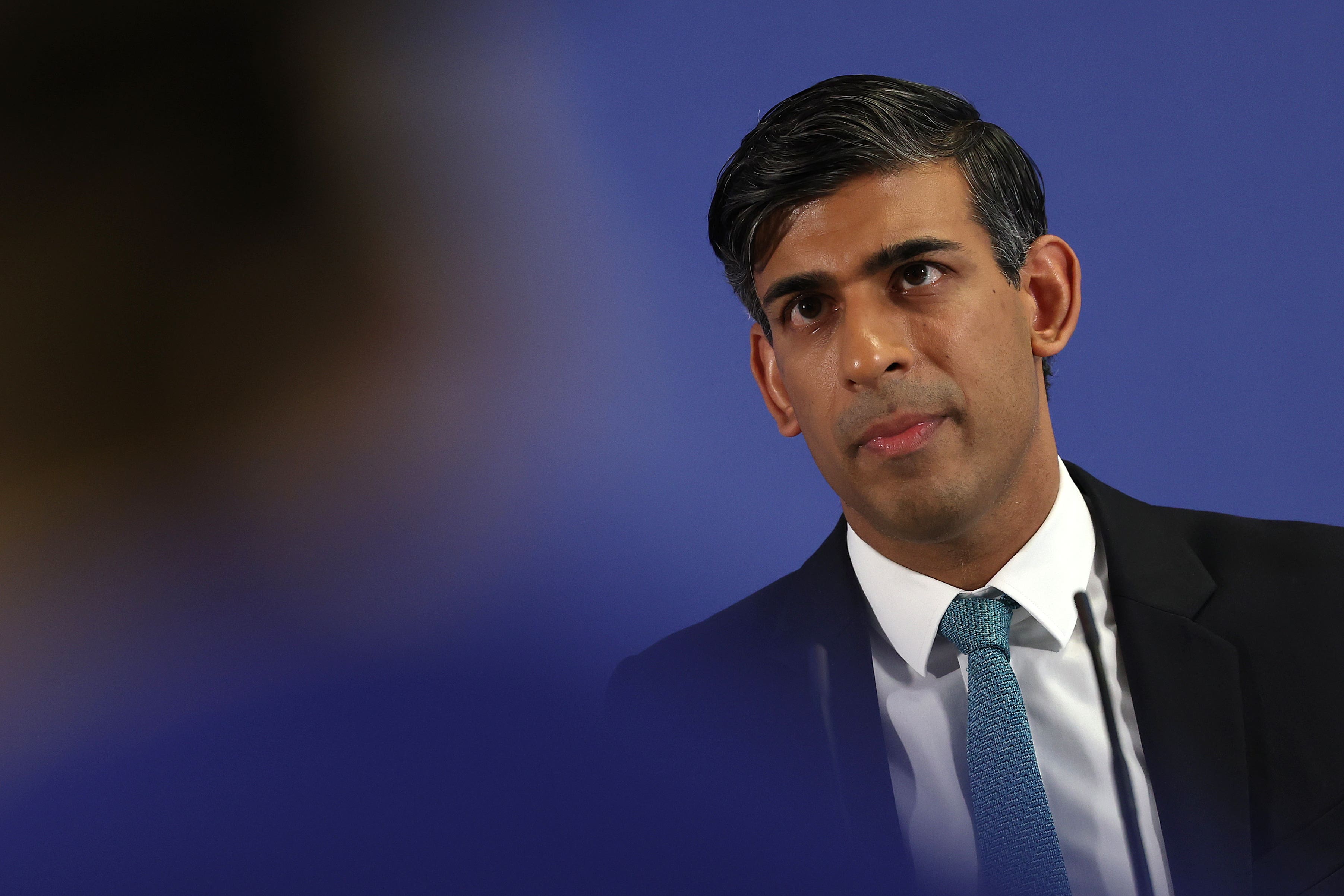Rishi Sunak stop short of introducing Hillsborough law – but offers apology
PM says sorry for delays – but insists law enforcing legal duty of candour not necessary
Rishi Sunak has stopped short of introducing the Hillsborough Law demanded by campaigners, as he issued an apology to bereaved families in the Commons.
Former bishop of Liverpool James Jones set out 25 learning points in his 2017 report following inquests into the disaster at the 1989 FA Cup semi-final in Sheffield – where 97 Liverpool FC fans died.
In its long-awaited response on Wednesday, the government has said it had signed up to a Hillsborough Charter – pledging to place the public interest above its own reputation – but said a “Hillsborough Law”, enforcing a legal duty of candour, was not necessary.
In the foreword, home secretary James Cleverly and justice secretary Alex Chalk admitted the response had taken “too long, compounding the agony of the Hillsborough families and survivors”. The ministers added: “For this we are deeply sorry.”
Mr Sunak said: “The Hillsborough families have suffered multiple injustices and more than 34 years later there can never be too many apologies for what they have been through.”
The PM added: “And I want to repeat that apology today and thank the Hillsborough families for their tenacity, patience and courage.”
Inquests into the deaths at the match, played between Liverpool and Nottingham Forest on 15 April 1989, concluded in 2016 and found that fans were unlawfully killed and errors by the police and ambulance service caused or contributed to their deaths.
The match commander on the day, David Duckenfield, was charged with gross negligence manslaughter in 2017 but he was cleared in 2019 at a retrial, after the jury in his first trial was unable to reach a verdict.

In his 2017 report, Mr Jones called for the government to give “full consideration” to a “Hillsborough Law” or Public Authority (Accountability) Bill.
The aim was to include a legal duty of candour on public authorities and officials to tell the truth and proactively cooperate with official investigations and inquiries.
But the Tory government said it was “not aware” of any gaps in legislation or clarifications needed that would further encourage a culture of candour among public servants in law.
It is understood ministers believe that adopting the duty of candour would risk “creating conflict and confusion” because of the framework of duties and obligations already developed since the disaster.
In its report, the government said the families and survivors were “entirely justified” in their frustration with the evasiveness they experienced from public officials. But it said much had changed in terms of expectations and requirements on public officials since 1989.

It said that “continuing to drive and encourage a culture of candour among public servants” was essential and an important part of the Hillsborough Charter, which deputy PM Oliver Dowden had signed on behalf of the government.
Mr Jones said the government’s response “falls short of the hopes of the Hillsborough families” – but said it was “a serious and substantial response” and welcomed the decision to sign the charter.
Former Tory prime minister Theresa May bemoaned the fact it has taken “so long” to respond to Mr Jones’ report. She asked for details on specific steps to ensure a new culture is instilled “across the whole of the public sector”.
The justice secretary highlighted efforts to put the charter into effect, saying it will be in training for police officers and induction for civil servants. Mr Chalk added it will “become part of the culture of what it means to be a civil servant in Britain”.
Leaders of public bodies who sign up to the charter commit to place the public interest above their own reputations.
Other organisations that have already signed up to the charter include the National Police Chiefs’ Council, College of Policing, Crown Prosecution Service and Kensington and Chelsea Council, the report said.
The government response also states that it will consult on expanding the provision of legal aid for inquests following public disasters.
In 2021, retired officers Donald Denton and Alan Foster and former force solicitor Peter Metcalf, who were accused of amending statements to minimise the blame on South Yorkshire Police after the tragedy, were acquitted of perverting the course of justice.
Mr Justice William Davis said the amended statements were intended for a public inquiry into safety at sports grounds led by Lord Justice Taylor, but that was not a course of public justice.
Join our commenting forum
Join thought-provoking conversations, follow other Independent readers and see their replies
Comments
Bookmark popover
Removed from bookmarks